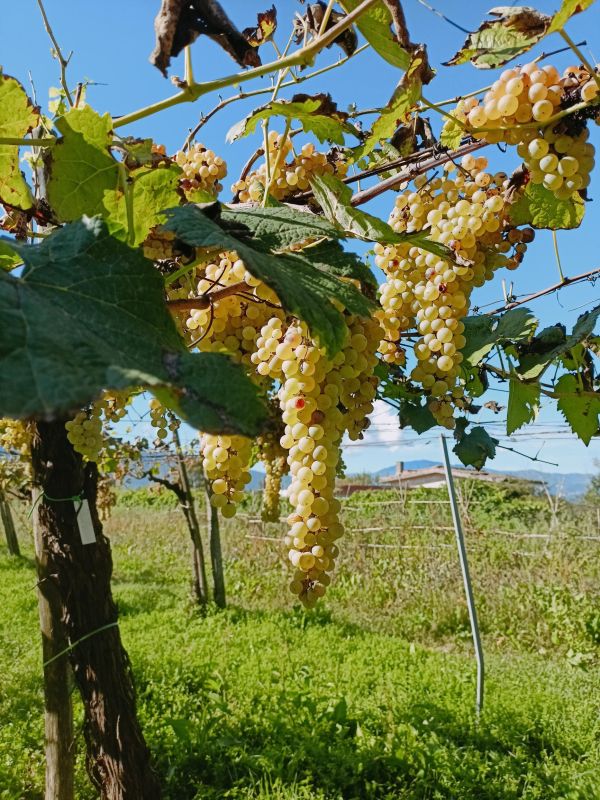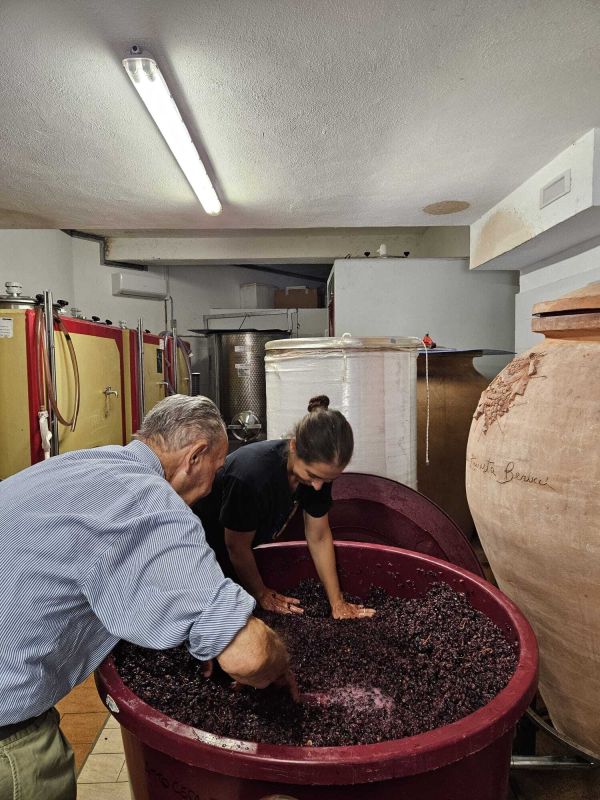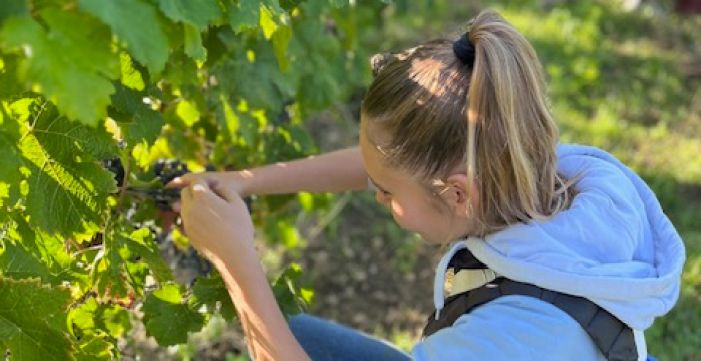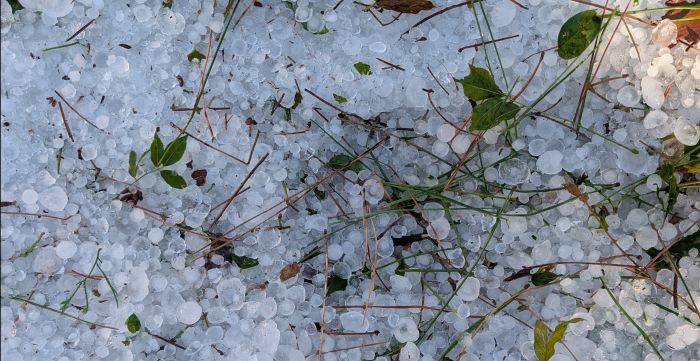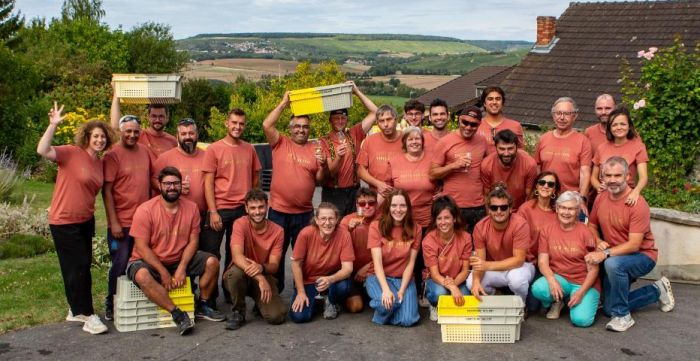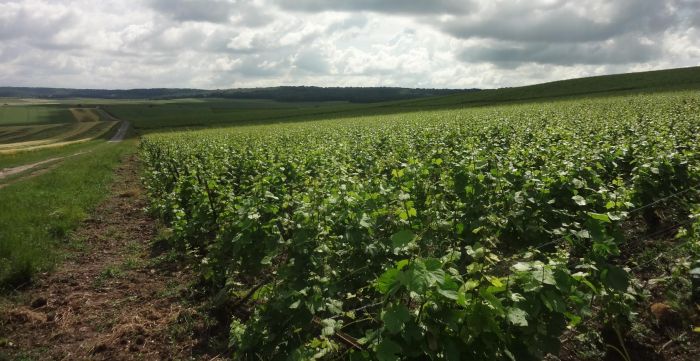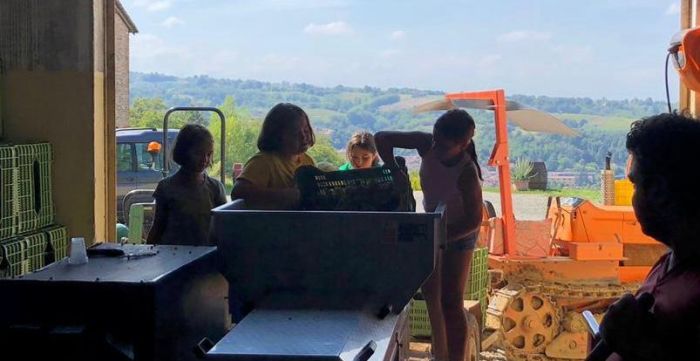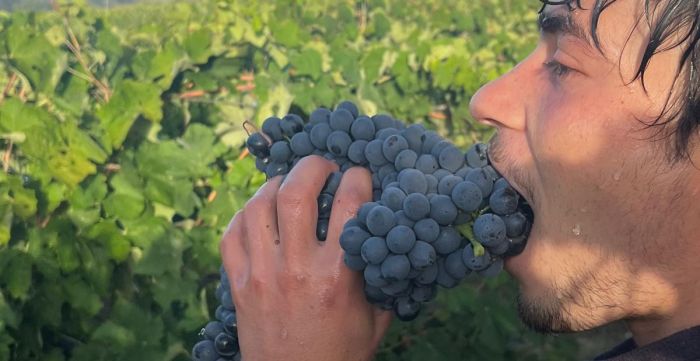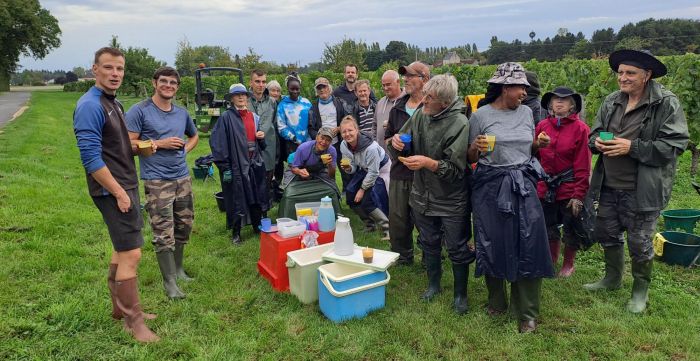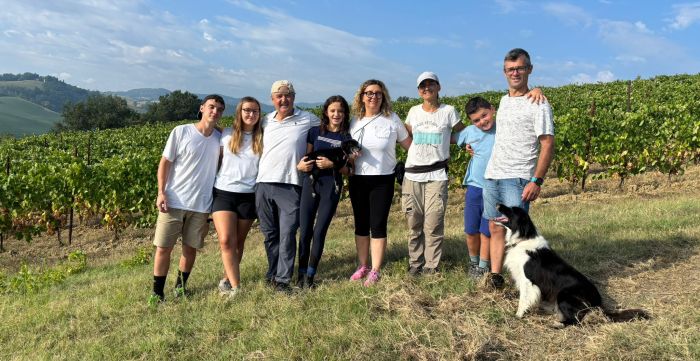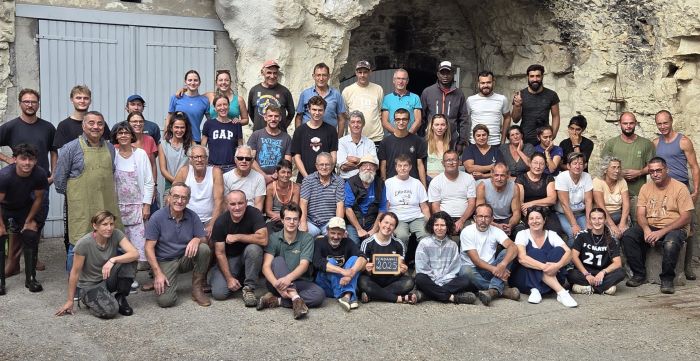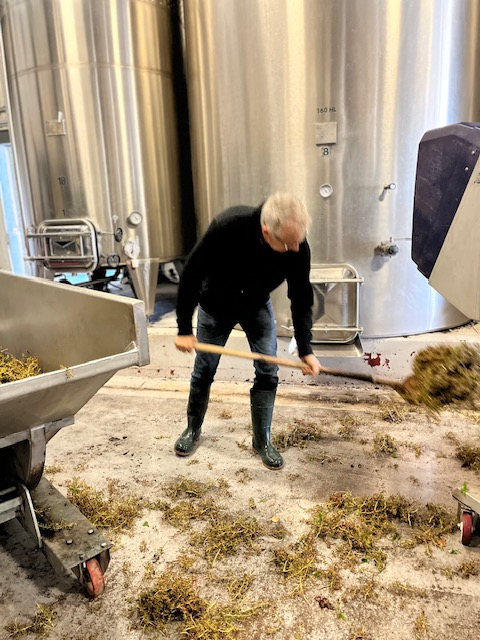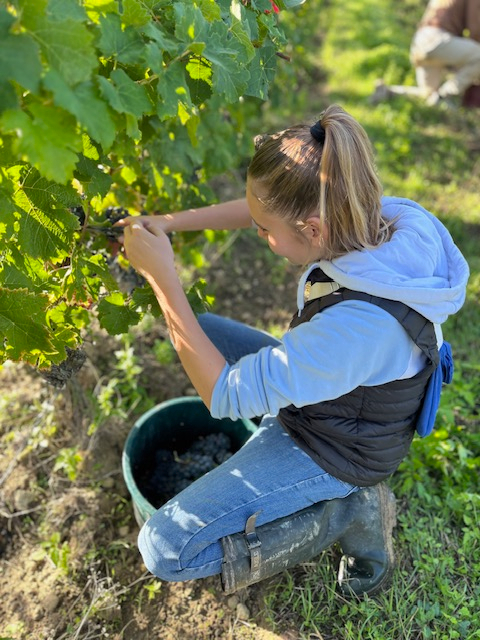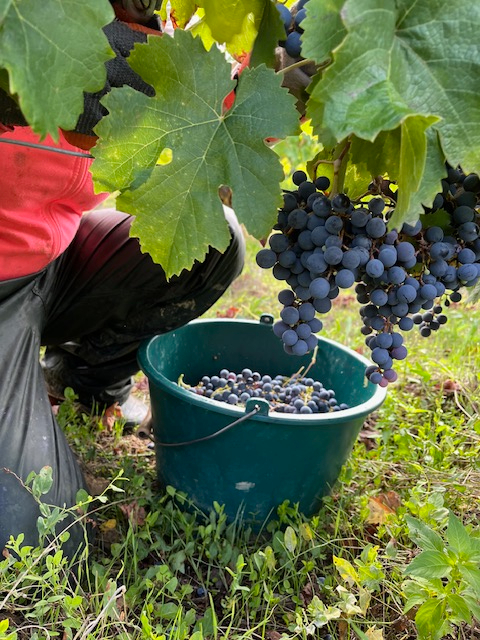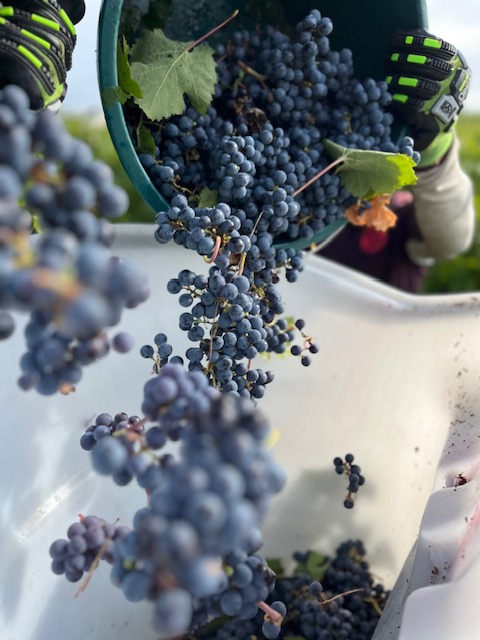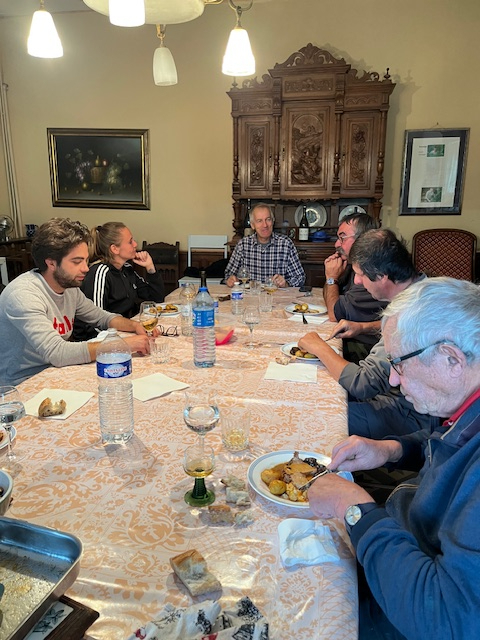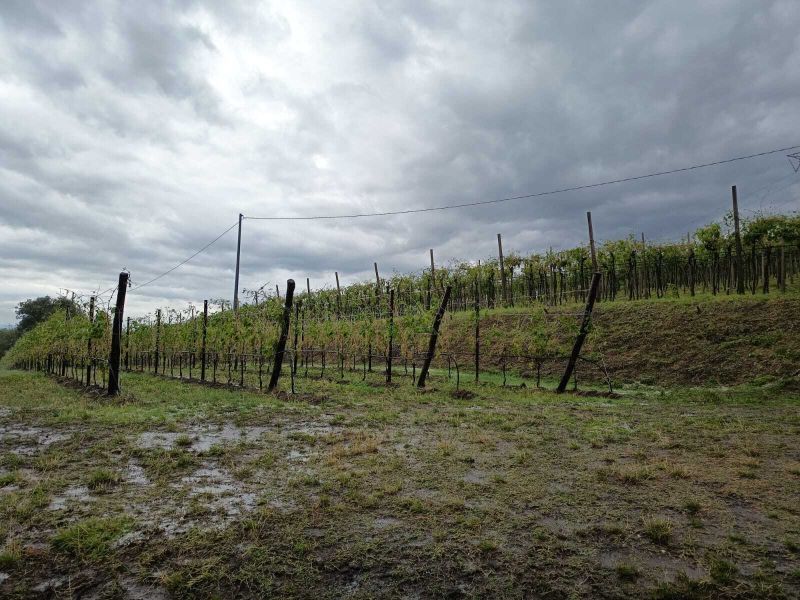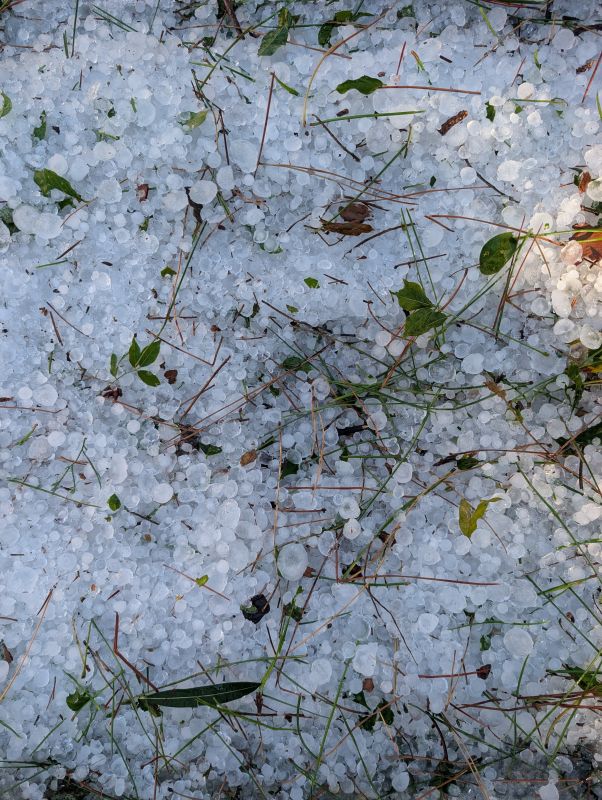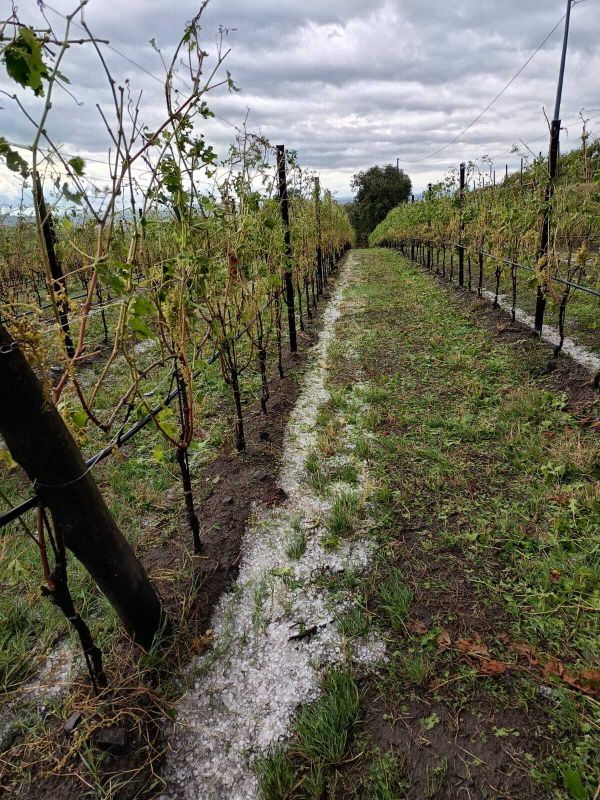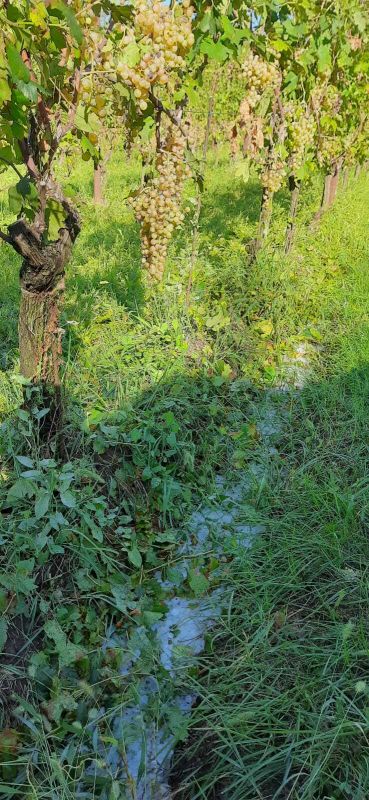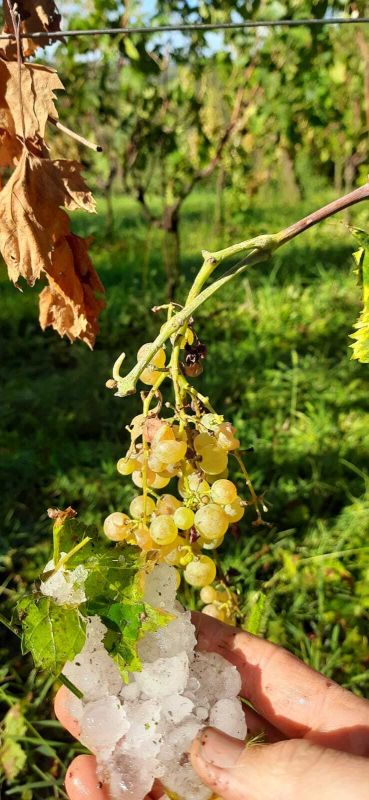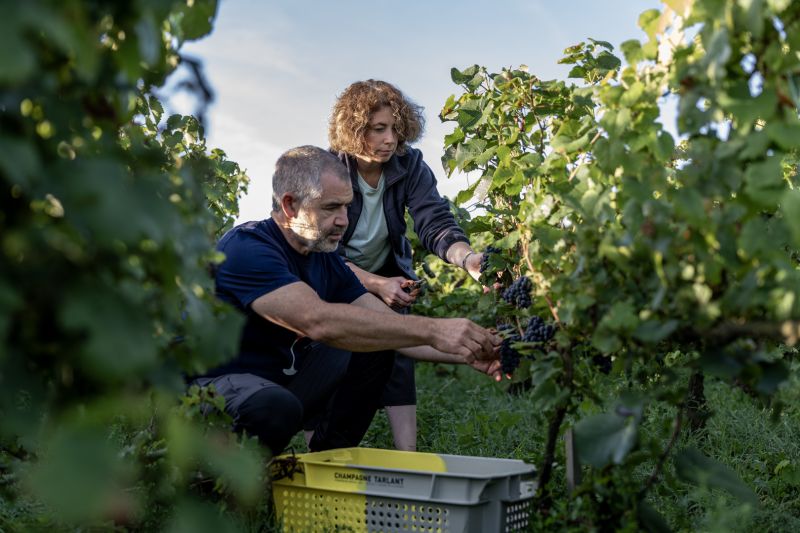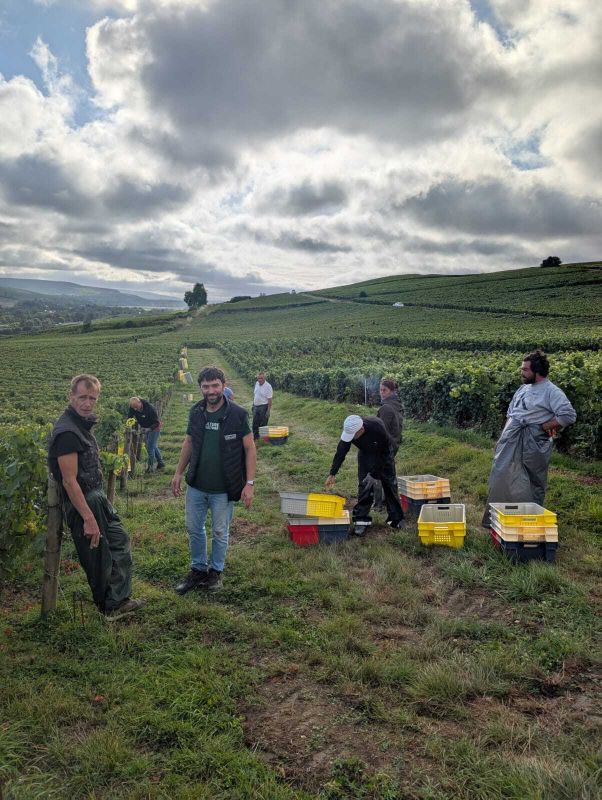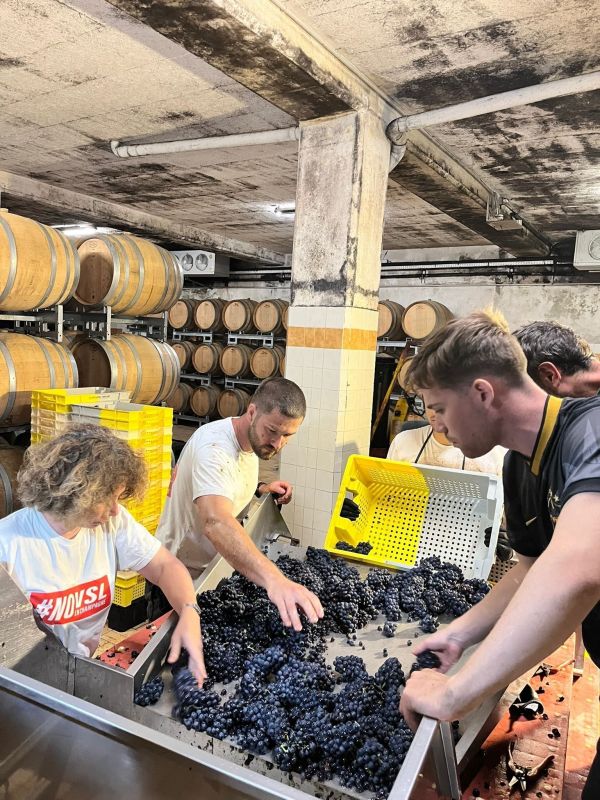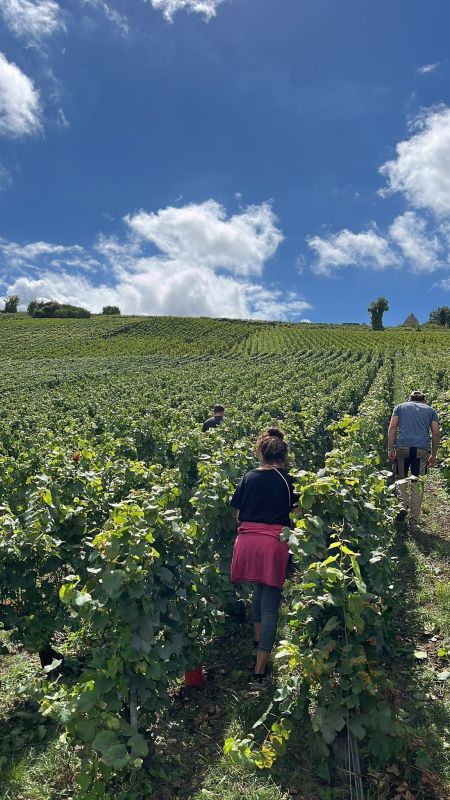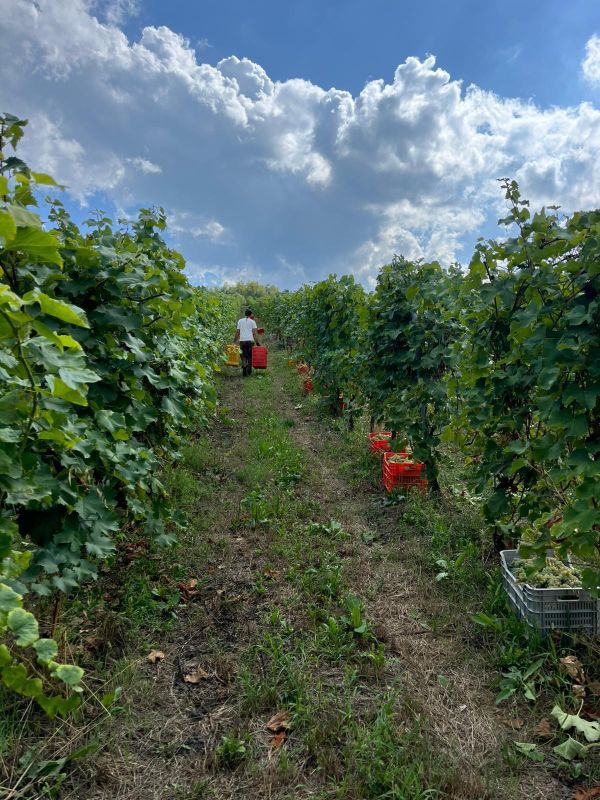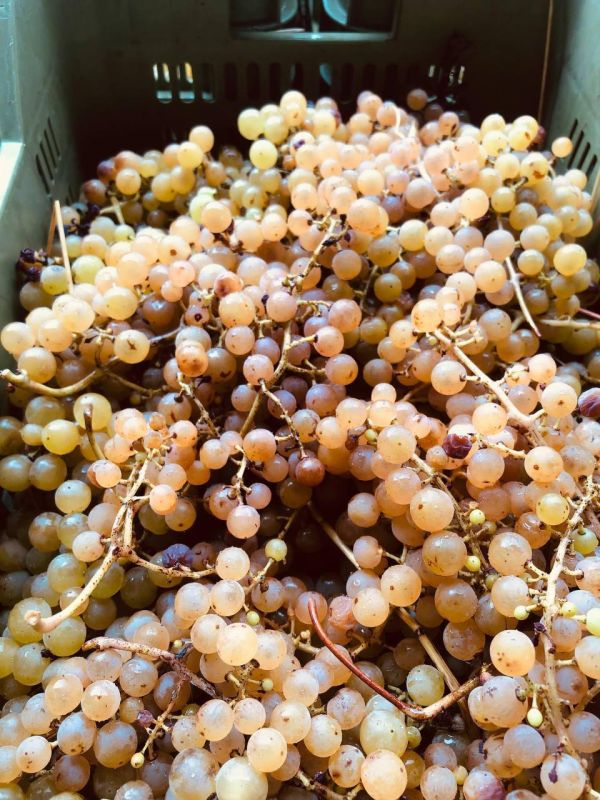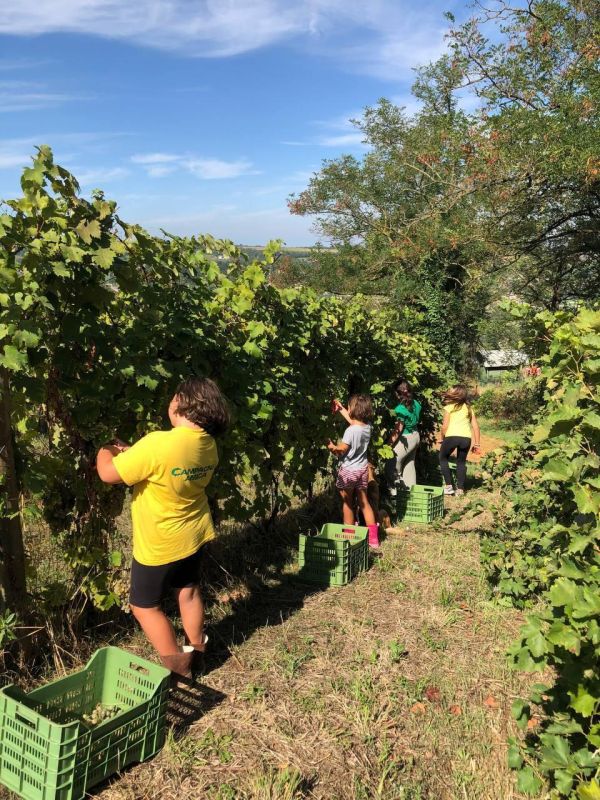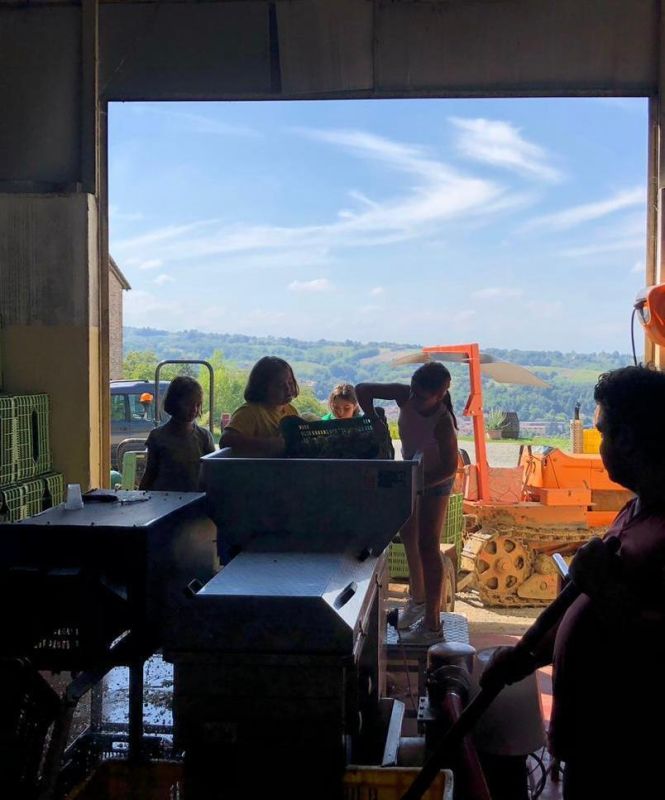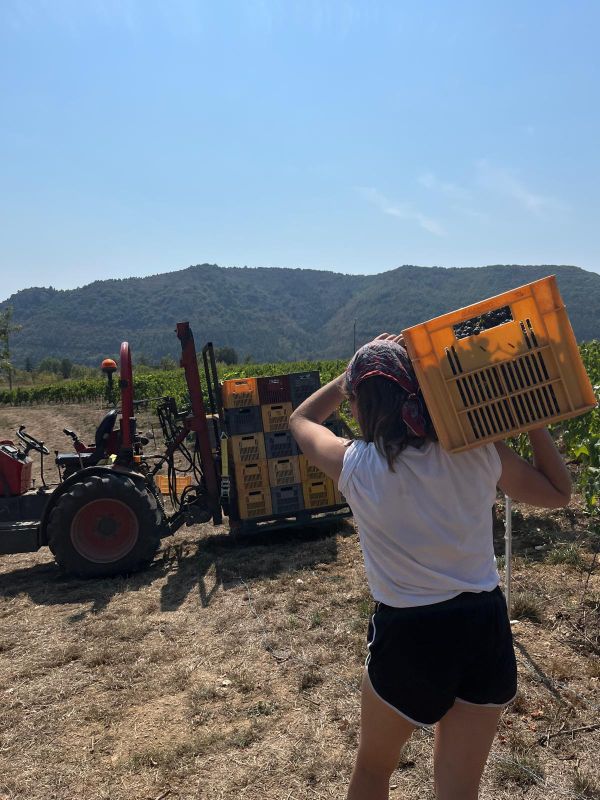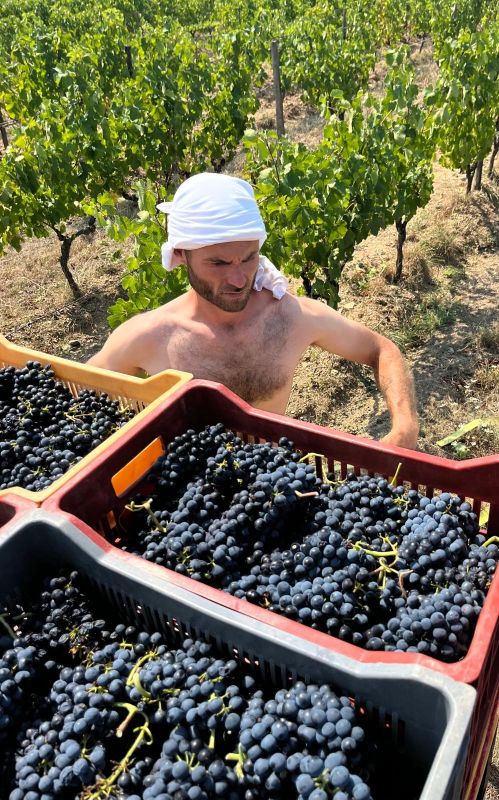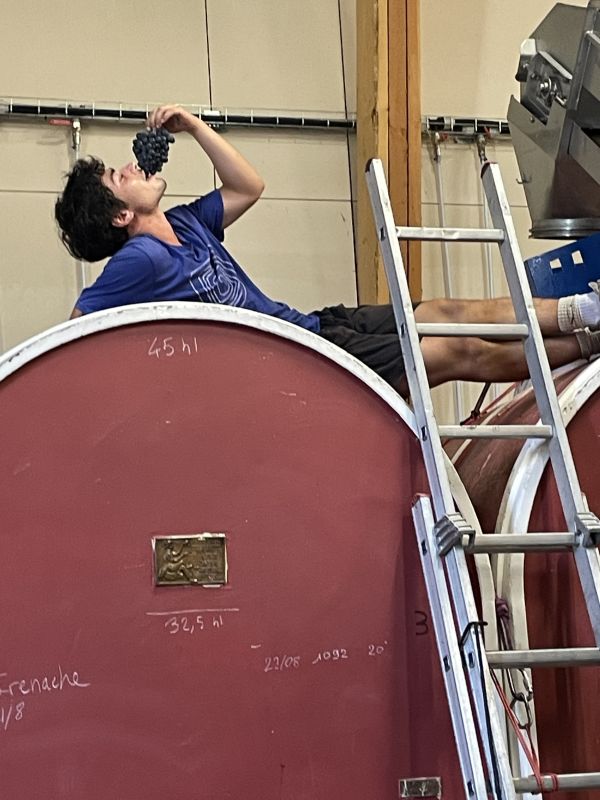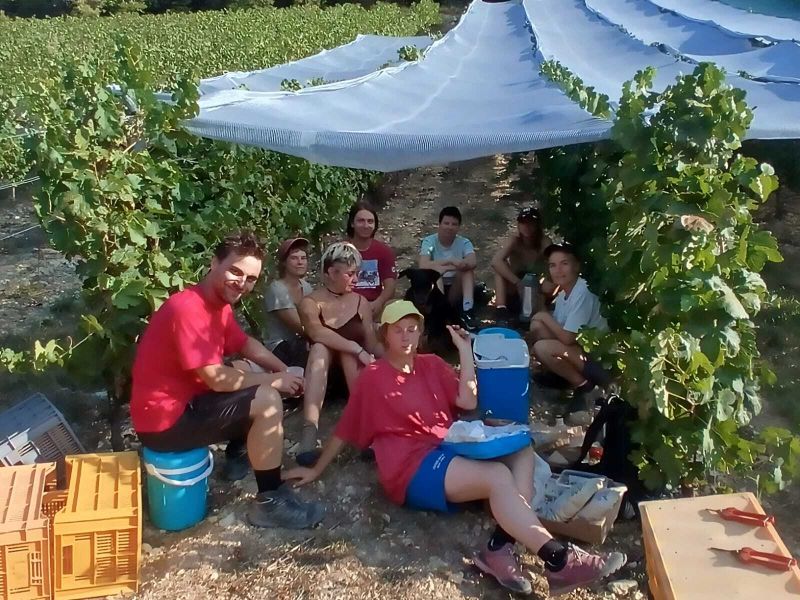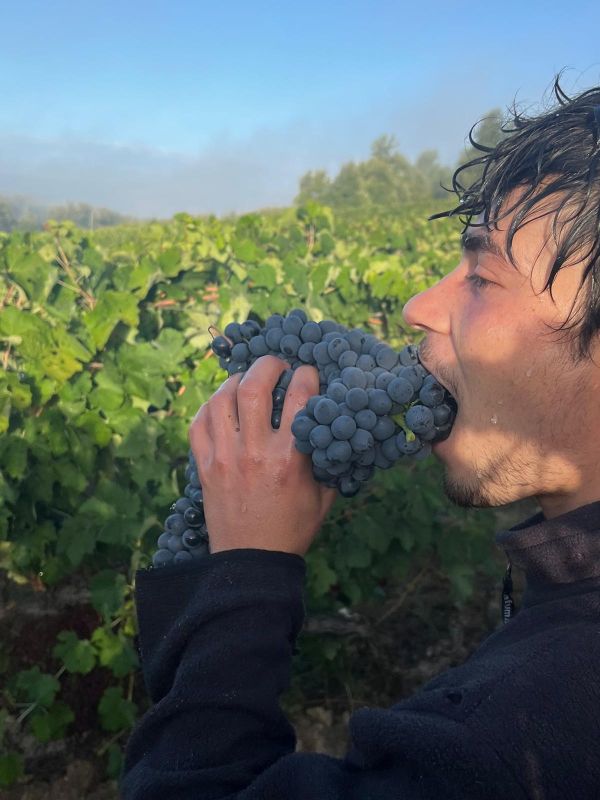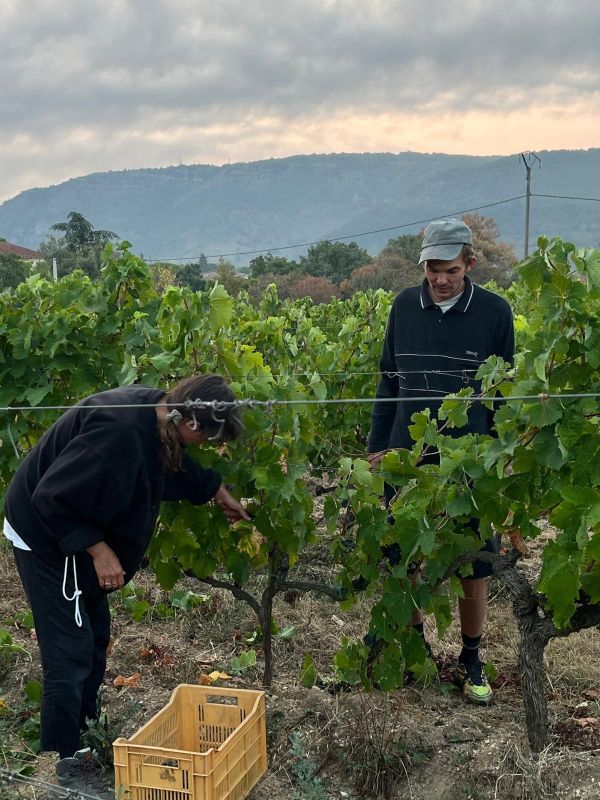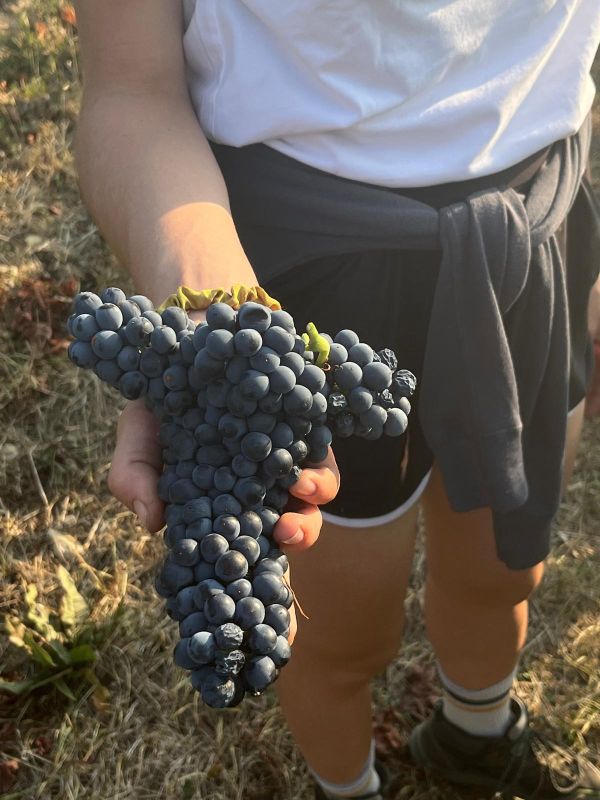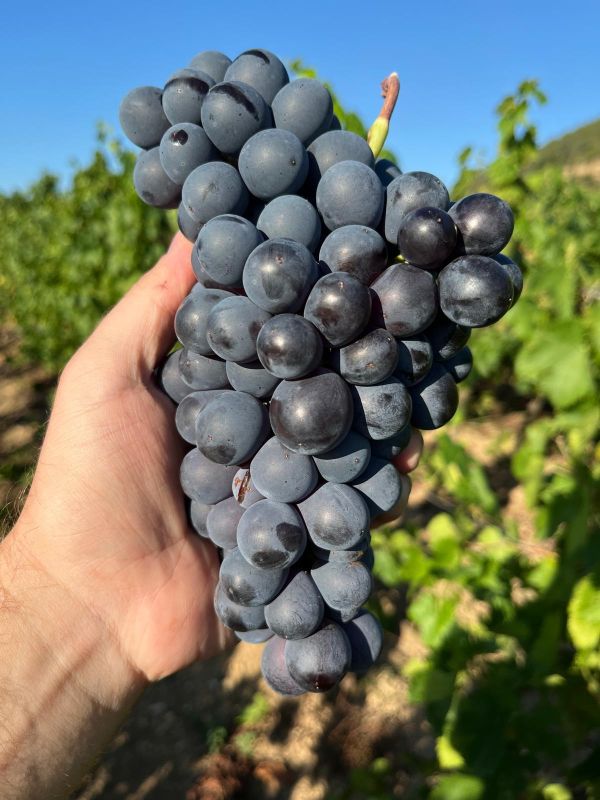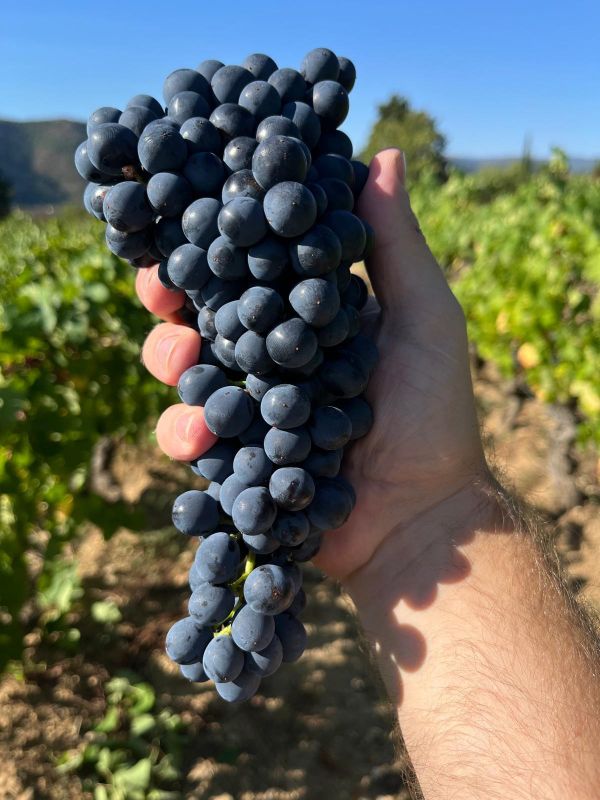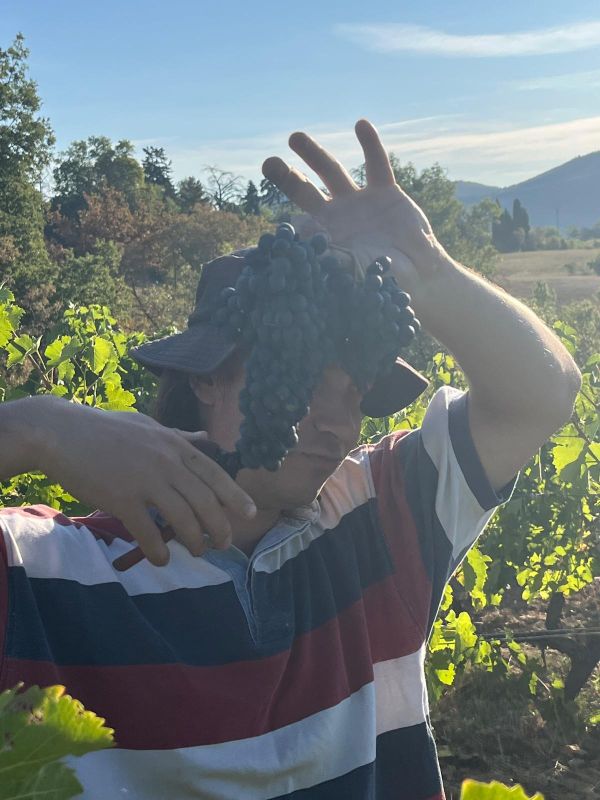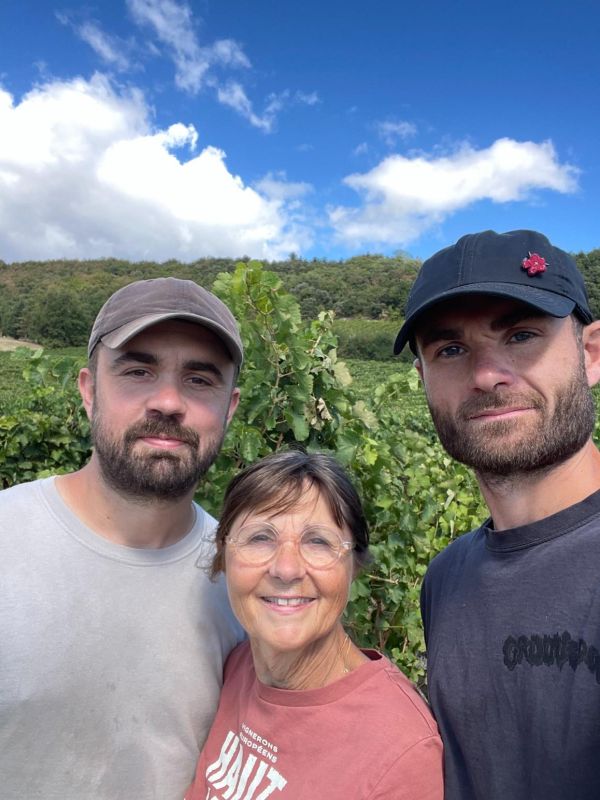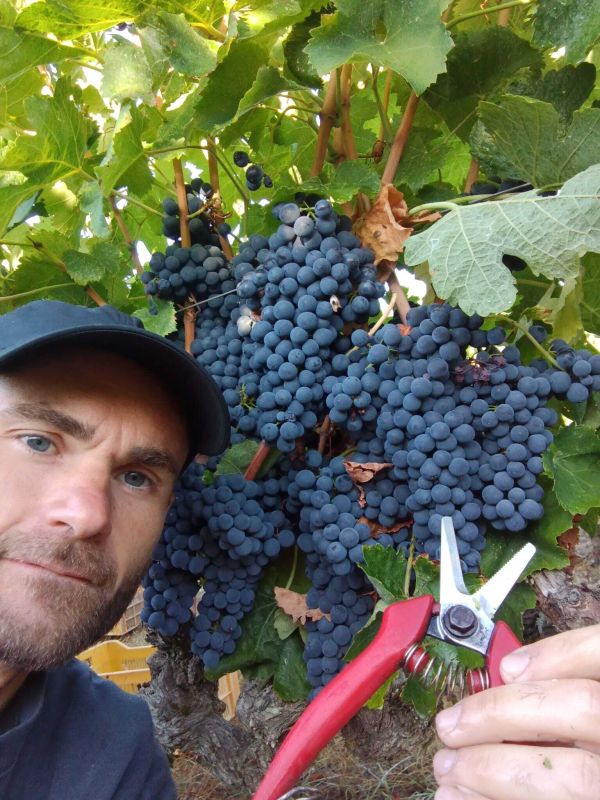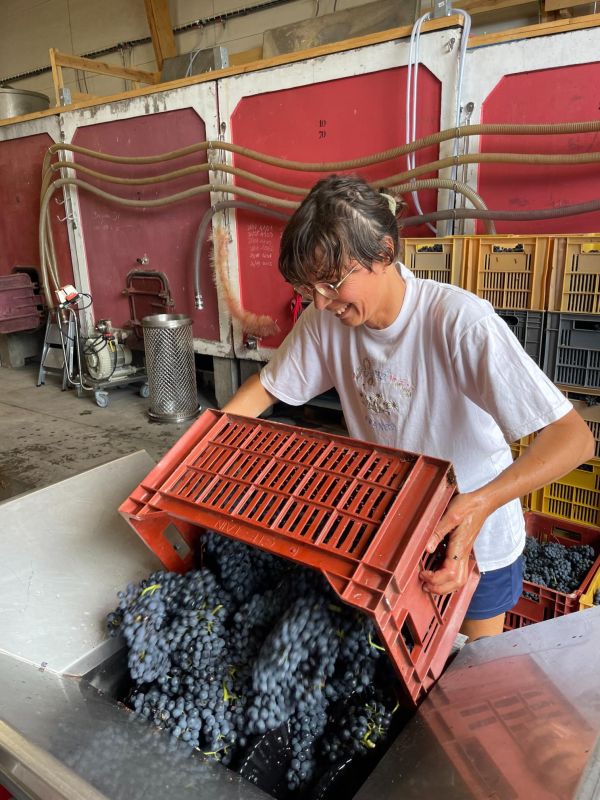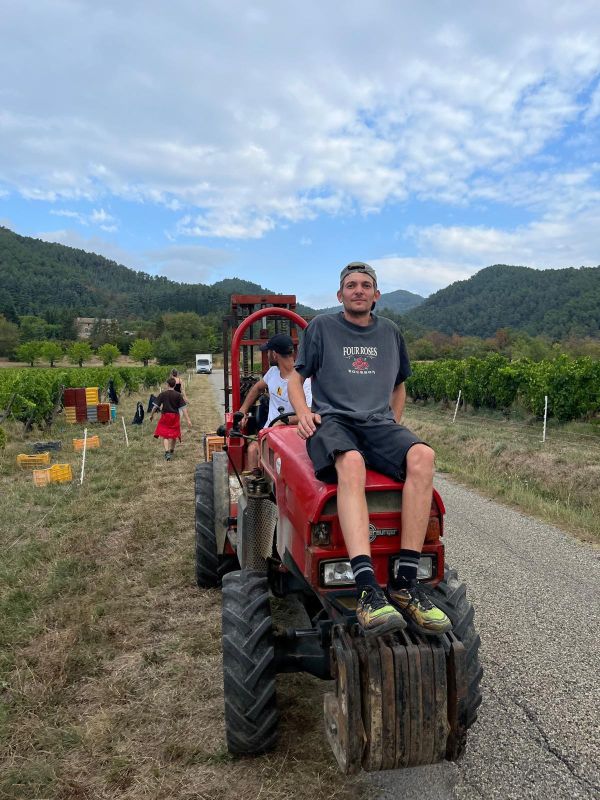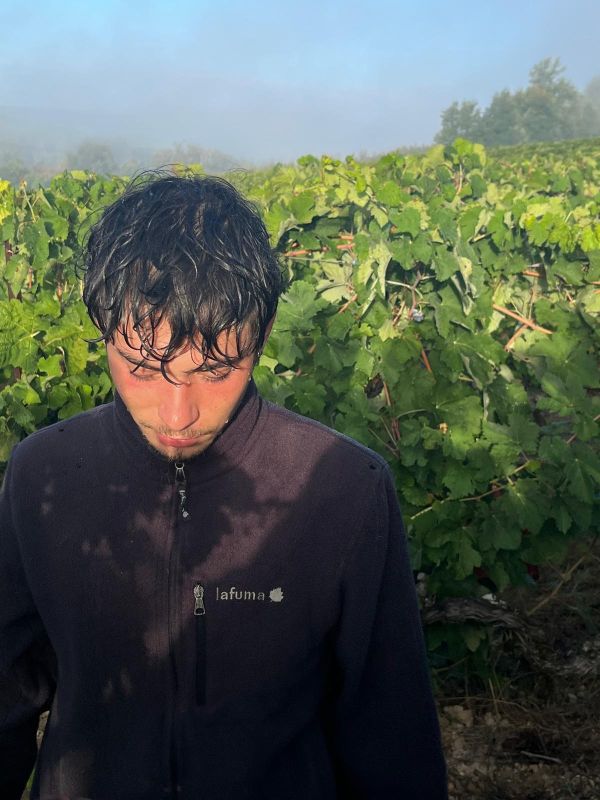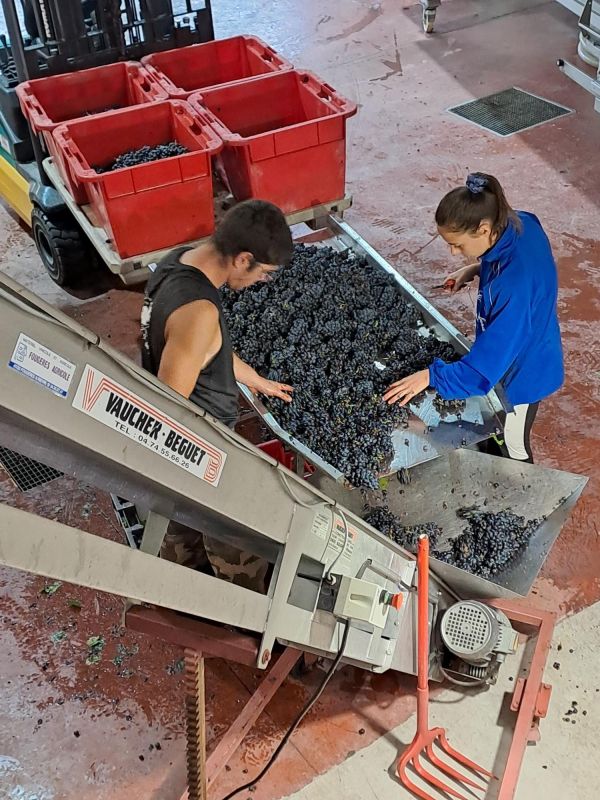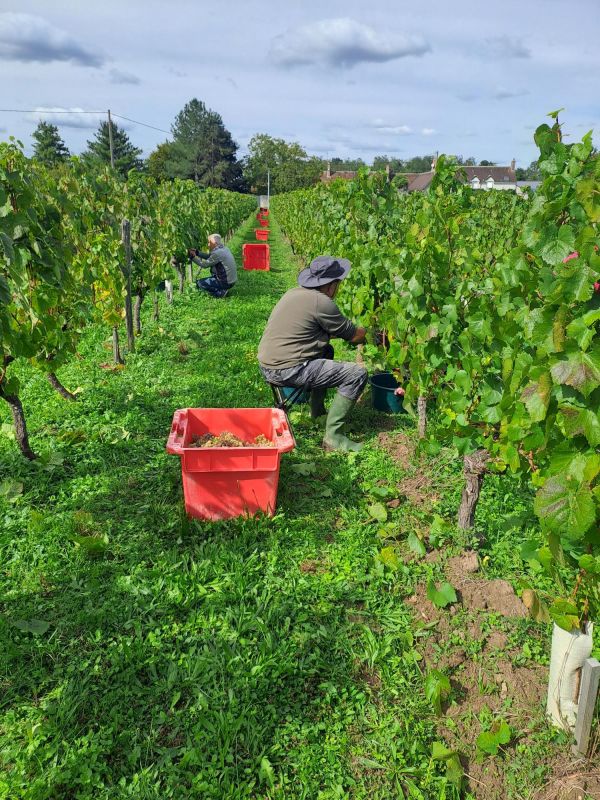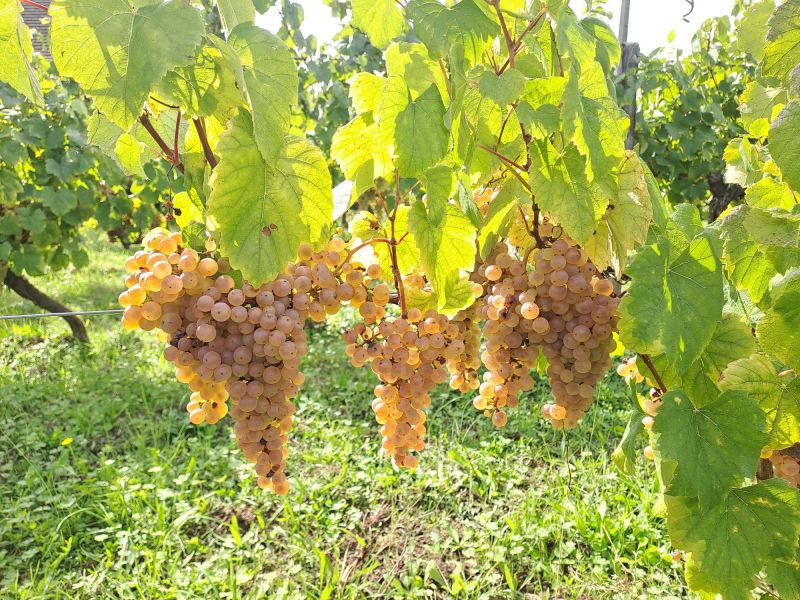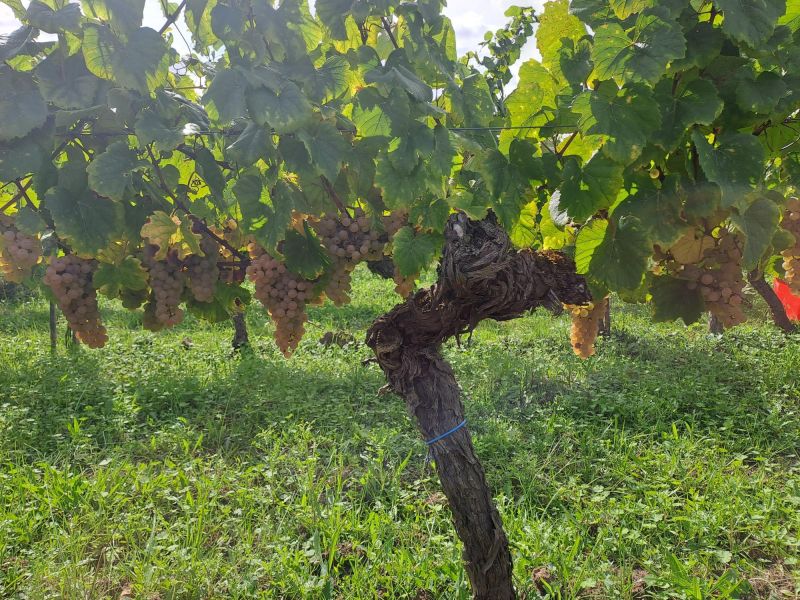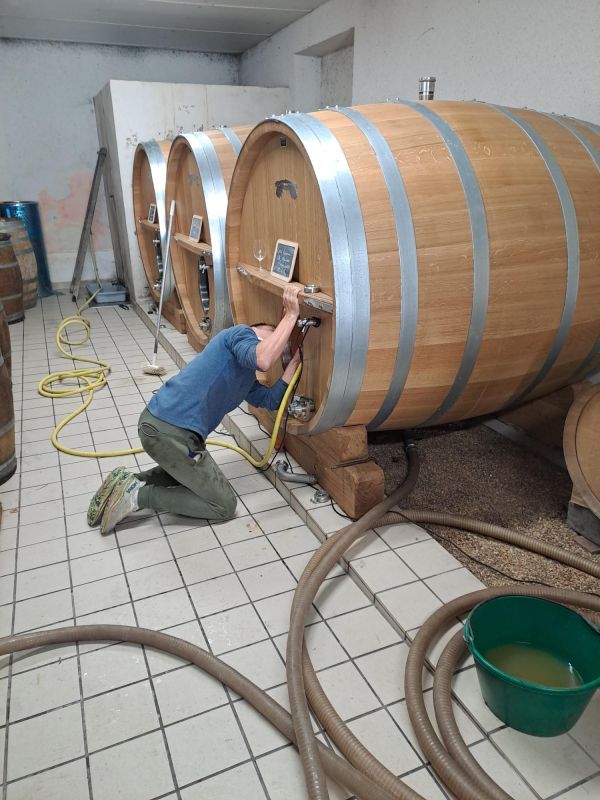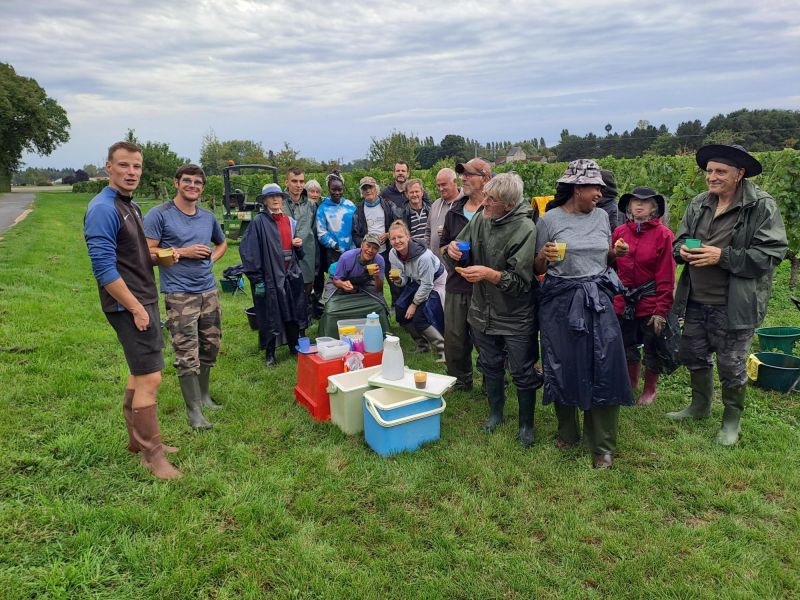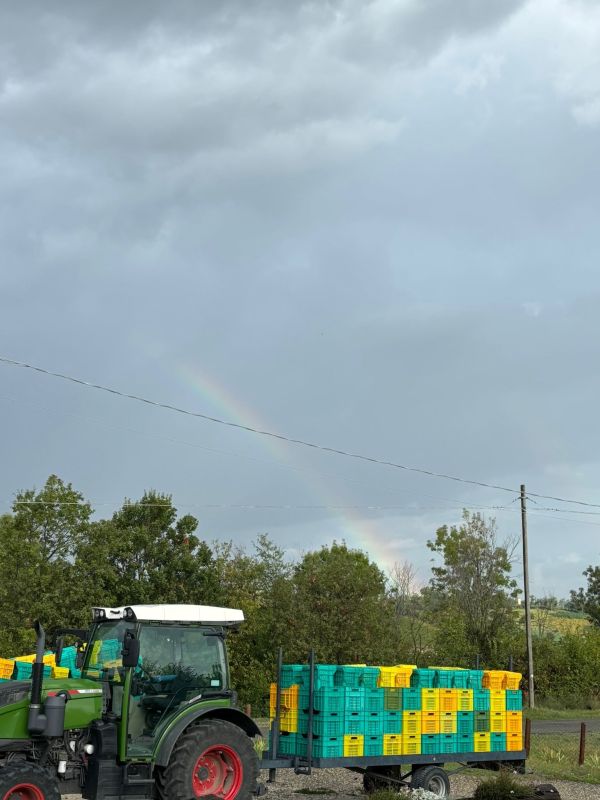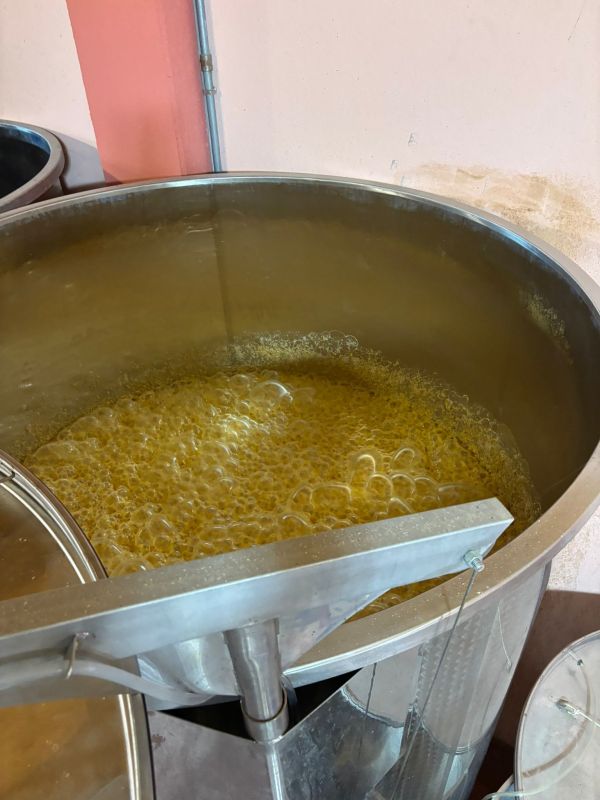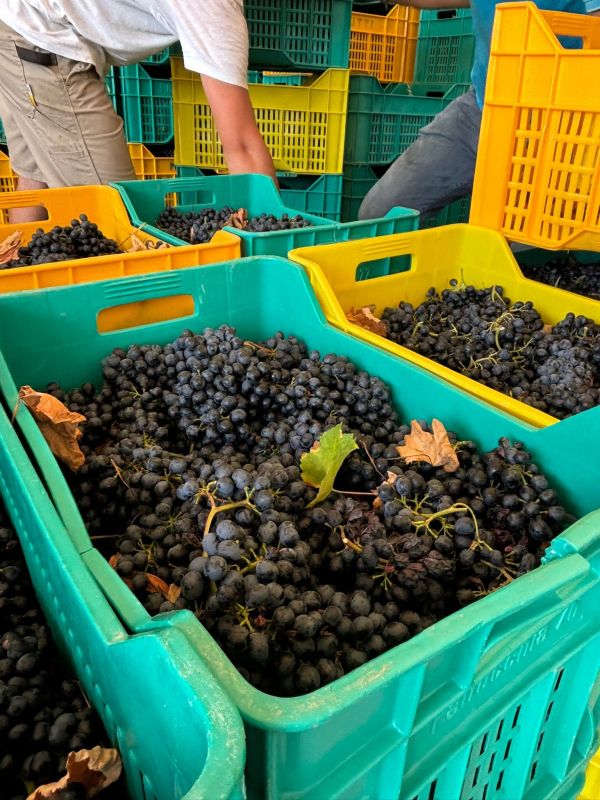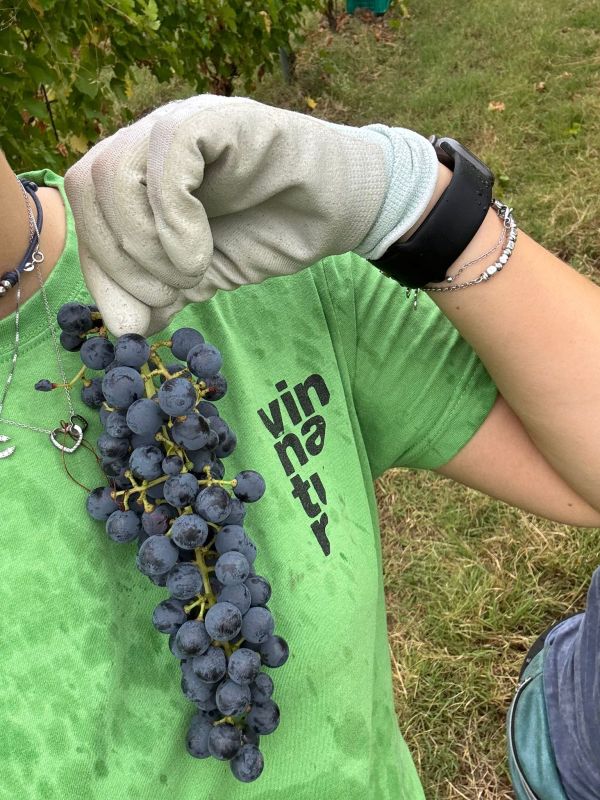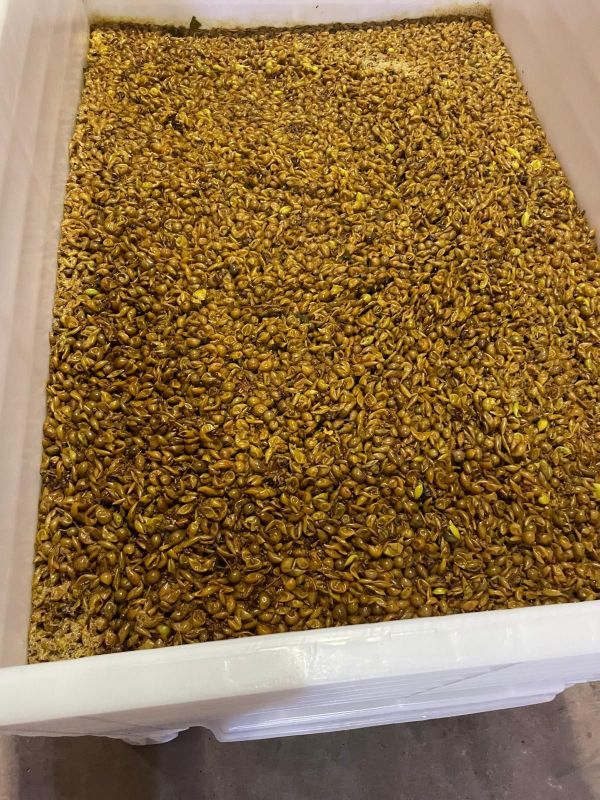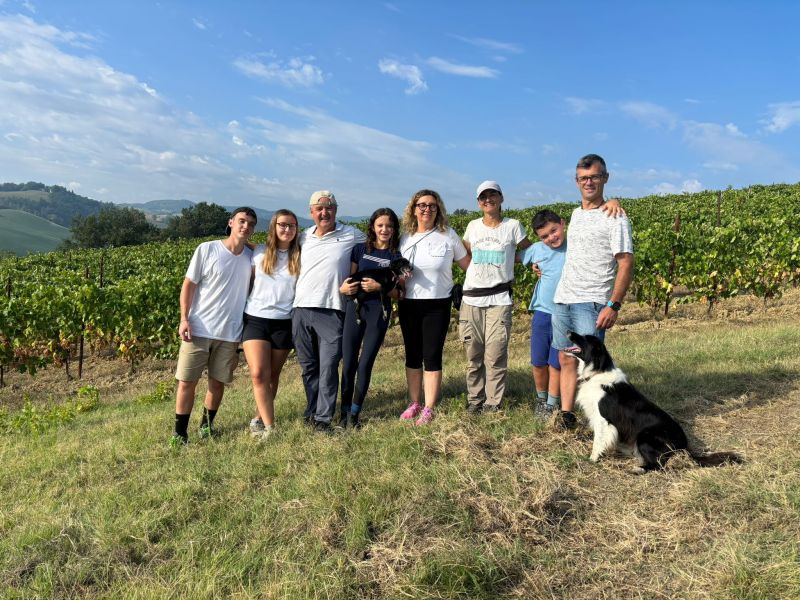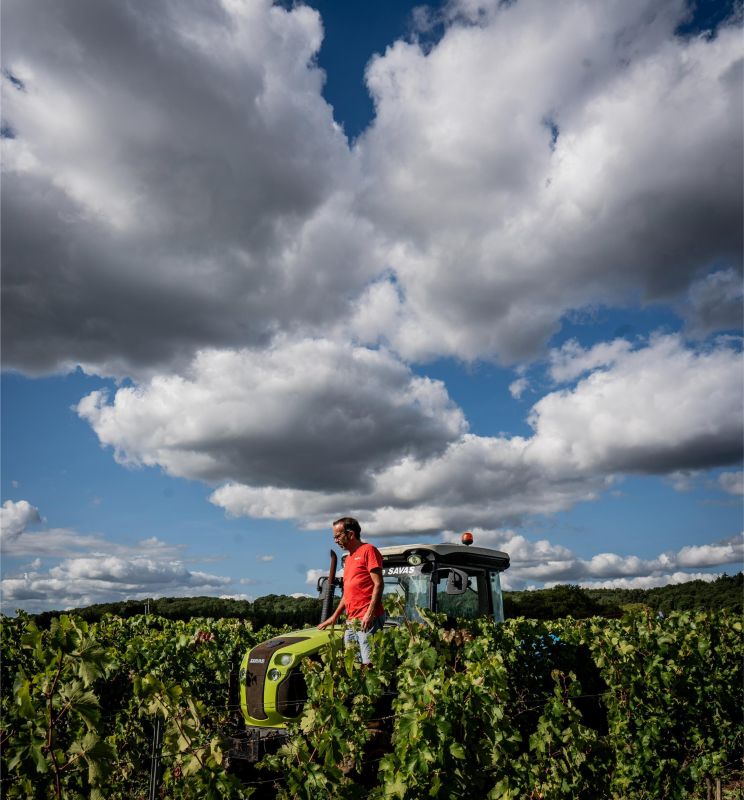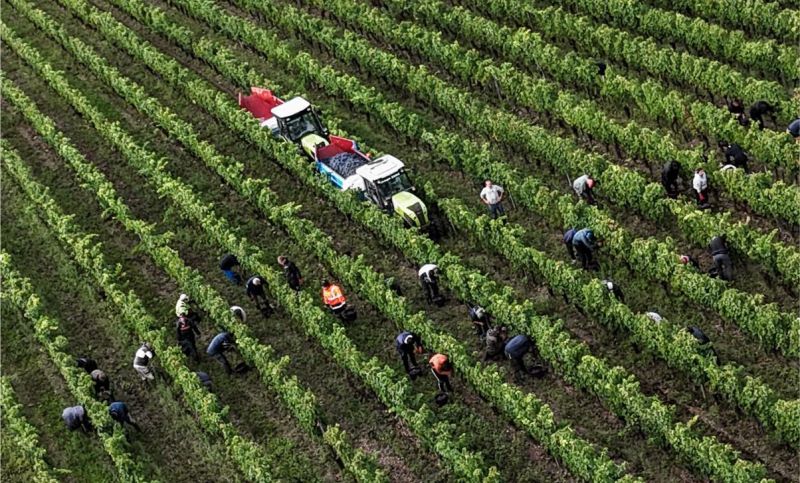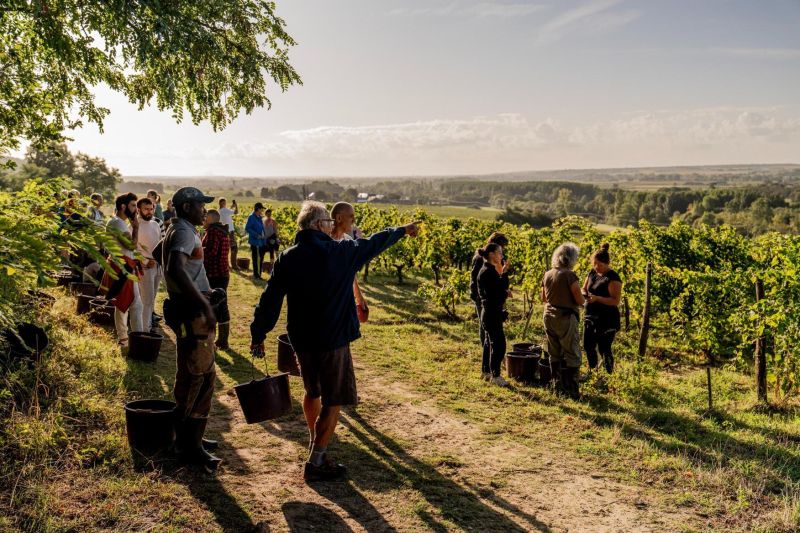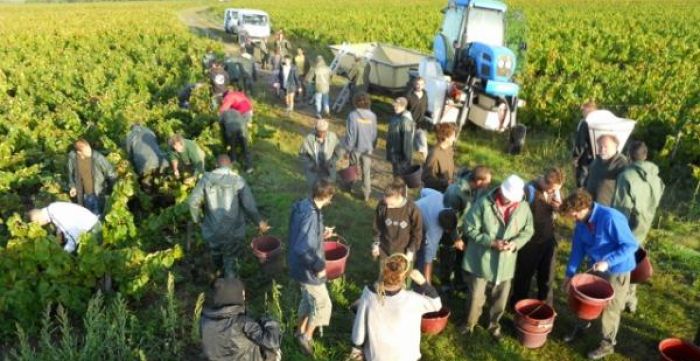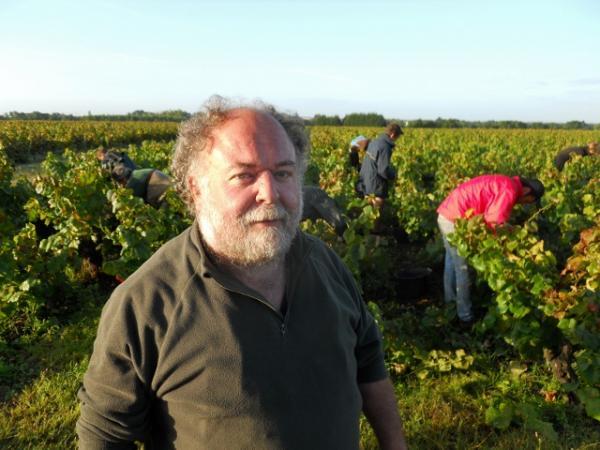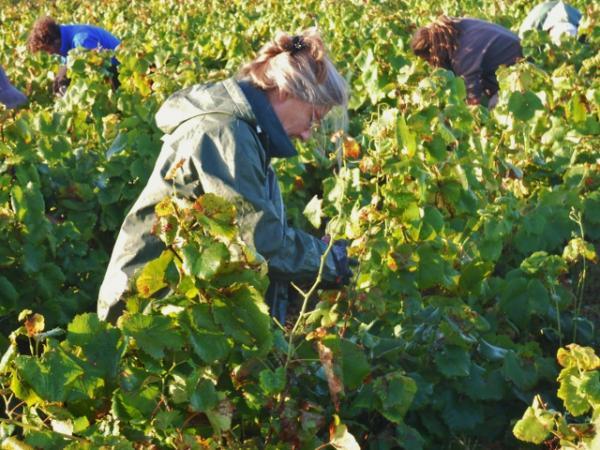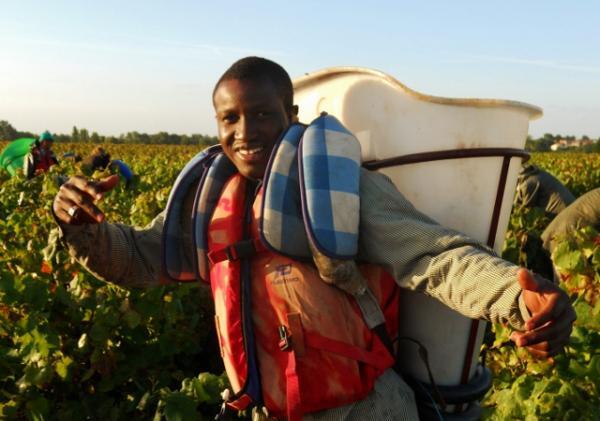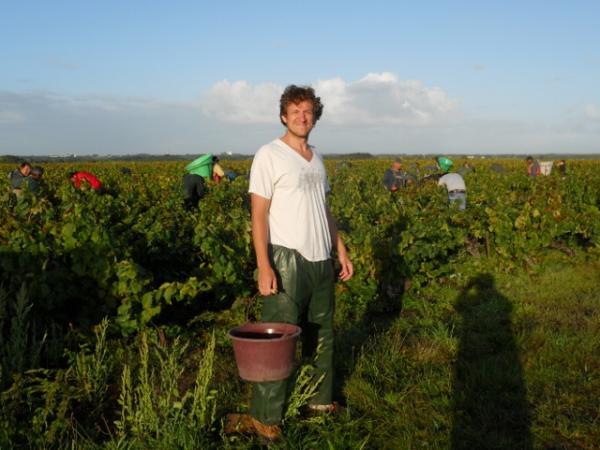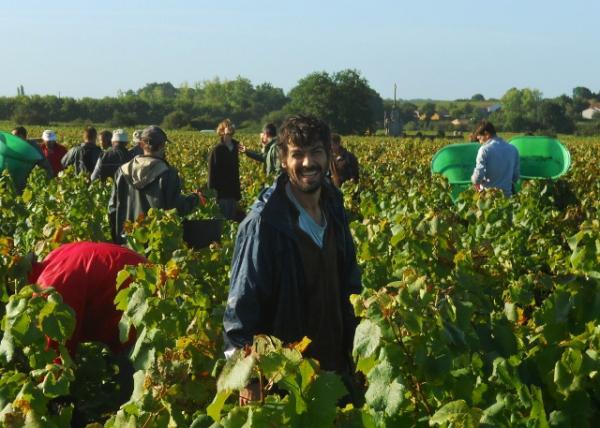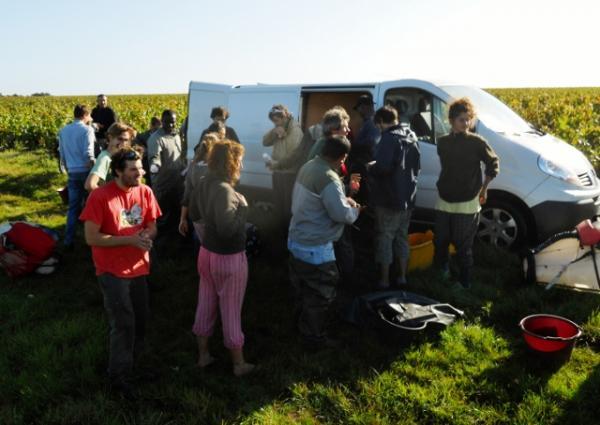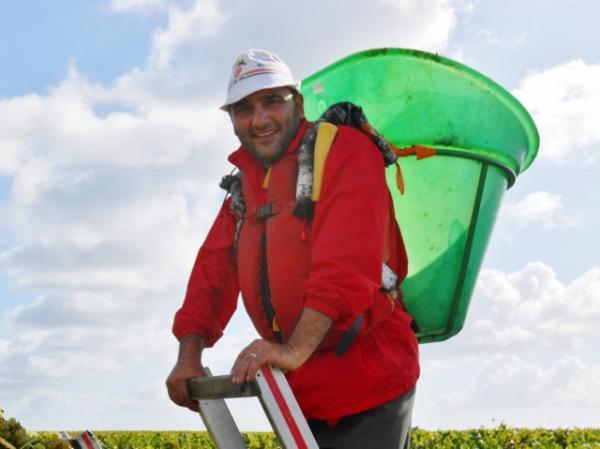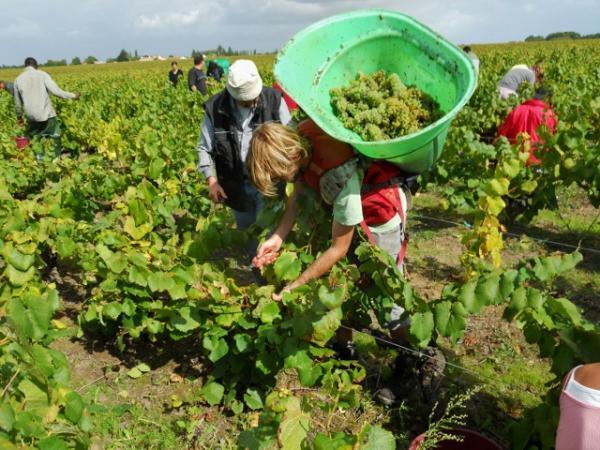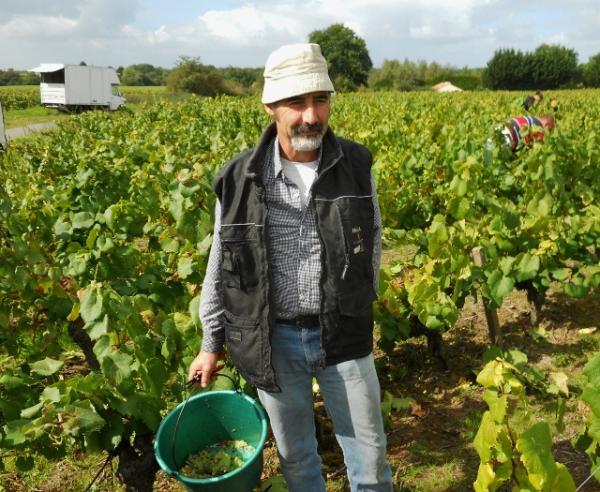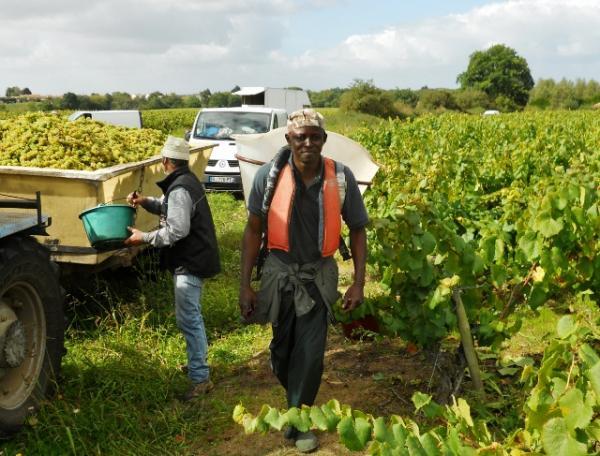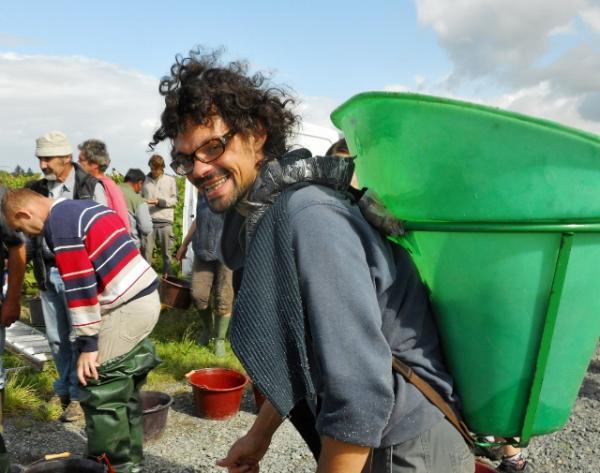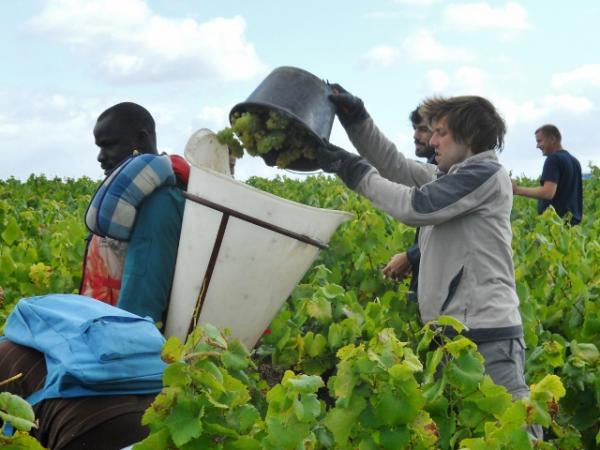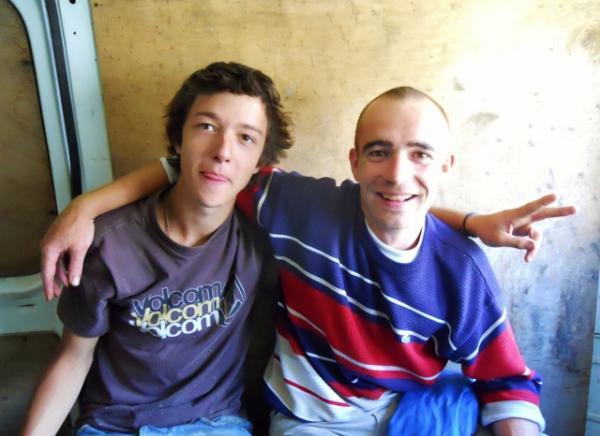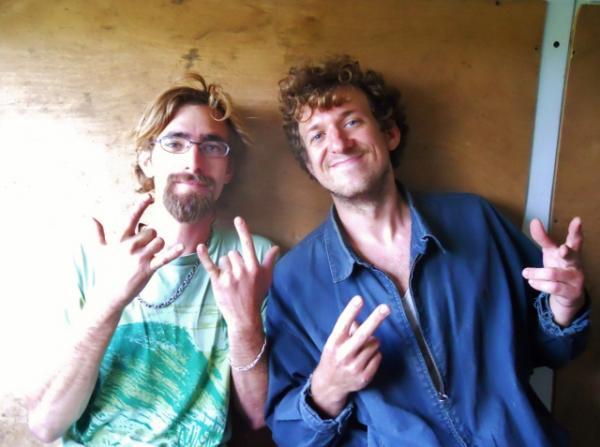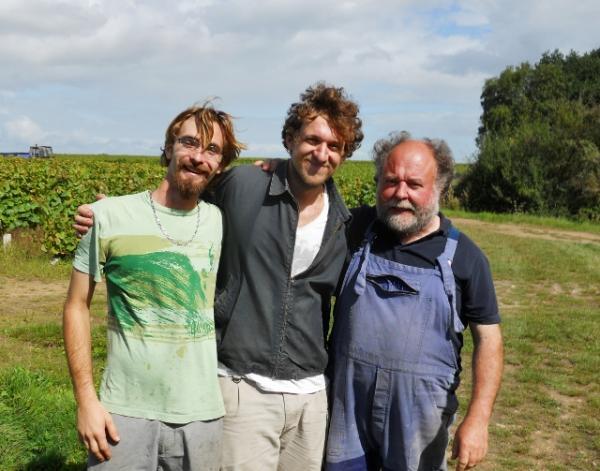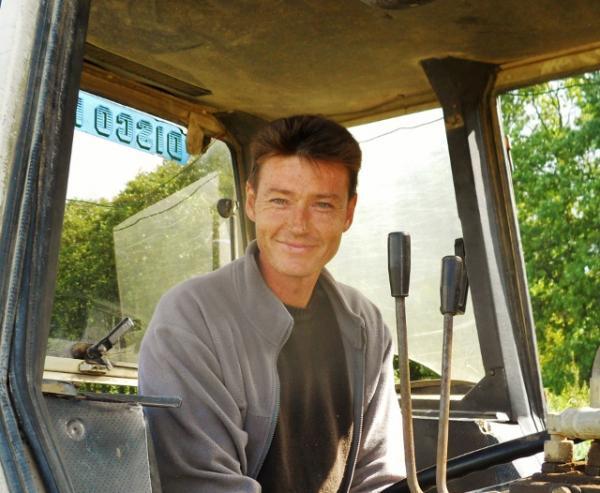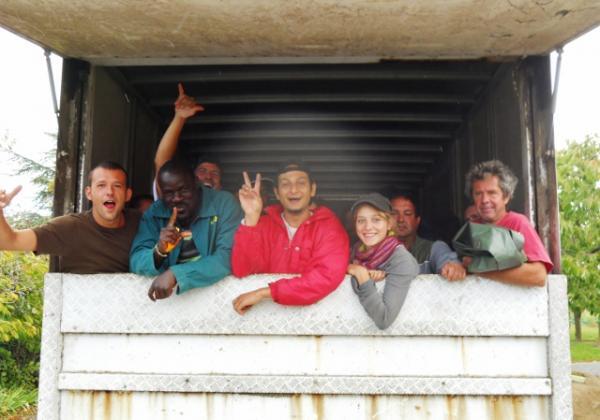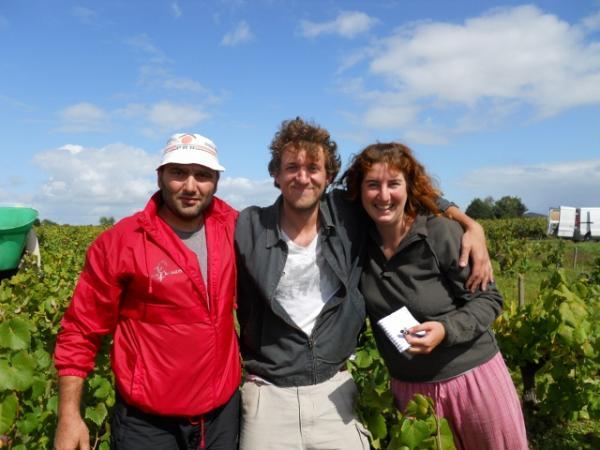"The Sparse and Inconsistent Glimpses of Beauty"
(cit. from the film “The Great Beauty” by Sorrentino)
The beginning of the 2025 season saw us in the vineyard early. Starting in 2024,
we took over two hectares of young, somewhat wild vineyards, divided among Cesanese, Lecinaro, and Capolongo (the latter two being native grape varieties of southern Ciociaria). Beginning with the 2024 vintage, these two have joined Cesanese in its rosé version and have given life to a new white wine, a 100% Capolongo which I hope will soon also be available in the USA.
Under a mild, sunny winter used to pre-prune the larger vineyards, Spring arrived early. Between April and May, the first 2024 wines were bottled, and the beautiful secondary fermentation of our Passerina Frizzante began. We reached June feeling positive about a vintage that seemed promising. The sun, however, came on strong, with rain falling on the weekends. The “hat” worn every Saturday by Monte Scalambra, which dominates the valley and the vineyards, cast ominous signs. Alas, those negative omens became reality on Sundays June 15 and 22nd and Monday June 30th, when three heavy hailstorms struck three different vineyards, all planted to Cesanese.
I was reminded of the final scene of the film The Great Beauty, in which the protagonist speaks of how inconsistent Beauty is when compared to the End. We were very sad, but not discouraged. Ten years of work in agro-homeopathy and the work on preparations carried out by Geminiano truly helped us this year, and we treated the affected grapes with a preparation derived from the endophytes of vine shoots collected in Spring and from bee propolis. It was early summer; the grapes aborted the berries that were badly damaged by hail but carried everything else through.
The second major obstacle came after August 15th. A rainy disturbance and a sudden drop in temperature put the grapes, which were in their final stage of ripening, somewhat into crisis. This was especially true for the Passerina which no longer wanted to increase its sugar levels, presenting itself at harvest with sugars that made us understand that for the 2025 white would be lower in alcohol.
Cesanese is always a true thoroughbred, and despite the hail and a somewhat cool end of August, it gave its very best. Certainly, we did not harvest the same quantity as in the abundant 2024 vintage (a vintage dear to my heart, as well as marking ten years of activity!), but we cared for and worked our grapes in a truly artisanal way, with attention to every single cluster. For Cesanese, we chose to carry out micro-vinifications, even harvesting small portions of a vineyard, paying close attention to the right moment of ripeness.
As for the new Lecinaro grapes, this year we also vinified them as a red wine base, therefore on the skins for the entire spontaneous fermentation. A very pleasant red wine was born, tasting of raspberry and blueberry. It could be a charming companion, in a small percentage, for the Cesanese Raphaël... I guess that's a small spoiler for the 2025 vintage!
Staying with new developments, Capolongo also confirmed itself as a very promising grape with great potential. A white wine that tastes of sun, intense, with a light presence of tannins that hints at its long capacity to age in bottle.
The well-known white grapes of our region, Passerina and Trebbiano, kept us busy almost until the end of October! We waited as long as possible for the harvest, carrying out small, targeted pickings—first for the base of the frizzante and then for Raphaël Passerina. The wine that is now aging in concrete is like a French poem, whispering delicate words of love.
Love always remains central in our daily life as winegrowers and producers; without this Force, it would truly be difficult to face and confront everything that changes, from the climate to the economy of the world.
